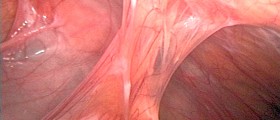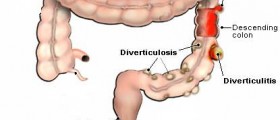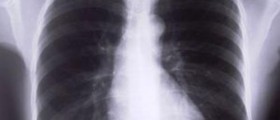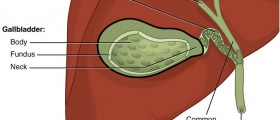
Intestinal Blockage
Intestinal blockage or intestinal obstruction represents the cut off in the passage of the stool and gas. There are numerous medical conditions that can cause intestinal blockage. This is an urgent condition and requires prompt medical help. If left untreated intestinal blockage may lead to life-threatening complications.
The symptoms of intestinal blockage include abdominal pain and swelling followed by nausea and vomiting. It can be easily diagnosed by plain abdominal X-ray.
Risk Factors for intestinal Blockage
Even though intestinal blockage may affect all people, there are certain risk factors which may lead to intestinal blockage. This medical condition frequently affects people who are predisposed.
All people who have already had abdominal or pelvic surgery of any kind are at higher risk of developing intestinal obstruction. This can be easily explained. Namely, after the abdominal and pelvic surgery the body tends to form adhesions which are bands of fibrous tissue and they can usually form in the operated area. These bands are the leading cause of intestinal obstruction.
Furthermore, even patients who have not been surgically treated and are suffering from hernia or tumors of the intestine may develop intestinal obstruction. Some medical conditions which affect gastrointestinal tract are also considered potential risk factors for intestinal blockage. Crohn's disease is only one of them. Even a history of constipation may in some cases lead to intestinal obstruction. And finally, malrotation, which is a congenital medical condition, can cause intestinal obstruction in infants. Treatment for Intestinal Blockage
All the patients suffering from intestinal obstruction are hospitalized. Once the patient has arrived his/ her medical condition is firstly stabilized. They are given fluids intravenously, some of them are inserted nasogastric tube and majority of patients are inserted an urinary catheter.
Further treatment basically depends on the actual cause of the obstruction. For example, if the patient is suffering from paralytic ileus, he/ she is monitored for a certain period of time. Paralytic ileus is often transitory and may withdraw spontaneously. If there is no obvious improvement after a few days patients with paralytic ileus are prescribed specific medications which lead to muscle contractions and promote passage of food and fluids through the intestine.
If there is partial mechanical obstruction patients may benefit from decompressing of the intestine with a nasogastric tube, while total mechanical obstruction requires urgent surgery.
Unfortunately, in majority of cases intestinal obstruction cannot be prevented. But, if it eventually occurs timely setting of the diagnosis is essential for proper treatment and prevention of possible complications. Prevention can be achieved by surgical removal of hernia and tumors that are diagnosed prior the eventual obstruction.

















Your thoughts on this
Loading...